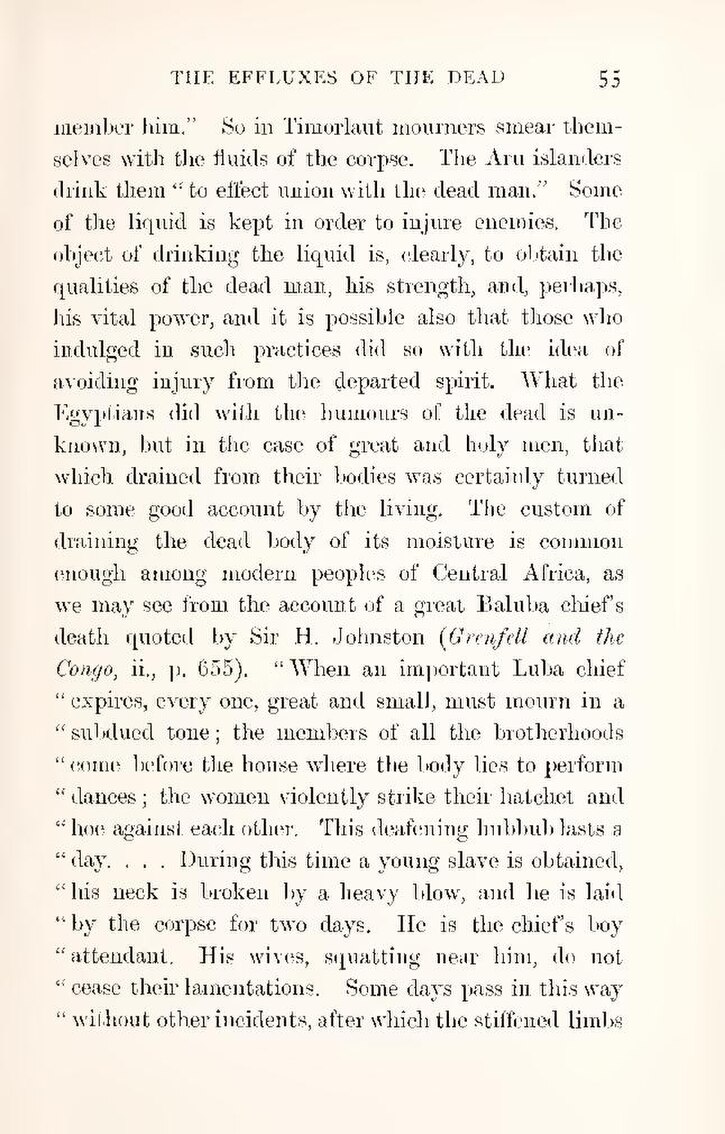member him.” So in Timorlaut mourners smear themselves with the fluids of the corpse. The Aru islanders drink them “to effect union with the dead man.” Some of the liquid is kept in order to injure enemies. The object of drinking the liquid is, clearly, to obtain the qualities of the dead man, his strength, and, perhaps, his vital power, and it is possible also that those who indulged in such practices did so with the idea of avoiding injury from the departed spirit. What the Egyptians did with the humours of the dead is unknown, but in the case of great and holy men, that which drained from their bodies was certainly turned to some good account by the living. The custom of draining the dead body of its moisture is common enough among modern peoples of Central Africa, as we may see from the account of a great Baluba chief's death quoted by Sir H. Johnston (Grenfell and the Congo, ii., p. 655). “When an important Luba chief expires, every one, great and small, must mourn in a subdued tone; the members of all the brotherhoods come before the house where the body lies to perform dances; the women violently strike their hatchet and hoe against each other. This deafening hubbub lasts a day. . . . During this time a young slave is obtained, his neck is broken by a heavy blow, and he is laid by the corpse for two days. He is the chief's boy attendant. His wives, squatting near him, do not cease their lamentations. Some days pass in this way without other incidents, after which the stiffened limbs
